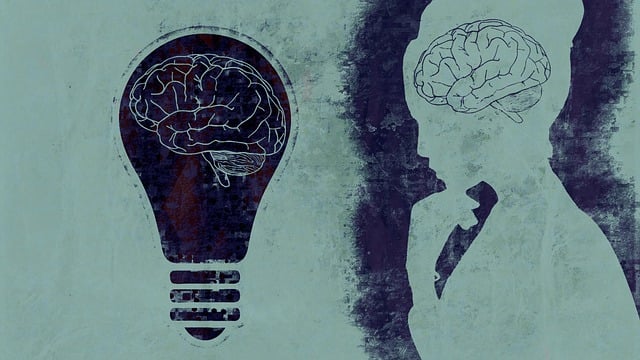Superior Children Therapy focuses on comprehensive risk assessment, utilizing structured interviews, observations, and client histories to identify vulnerabilities related to trauma, substance abuse, or family issues. This process enables tailored interventions, enhancing the therapeutic experience through compassion cultivation, stress management workshops, and conflict resolution techniques. Key tools include age-appropriate communication strategies, stress reduction methods, and confidence-boosting techniques, fostering safety and trust in a supportive environment. Continuous professional development, evidence-based practices, self-care routines, and community outreach programs are vital for maintaining high-quality care, ensuring therapists can effectively support children's mental health needs.
Mental health professionals constantly navigate complex emotional landscapes, making risk assessment a cornerstone of effective practice. This article guides you through the essentials of risk evaluation in mental health settings, with a particular focus on superior children therapy. We explore identifying risks specific to child clients, implementing robust safety strategies, and the ongoing monitoring crucial for quality care. By understanding these elements, professionals can enhance their approach to providing superior children therapy while ensuring client safety and well-being.
- Understanding Risk Assessment in Mental Health Practice
- Identifying Potential Risks in Children's Therapy Settings
- Implementing Effective Safety Strategies for Superior Children Therapy
- Continuous Monitoring and Improvement in Mental Health Care
Understanding Risk Assessment in Mental Health Practice

In the realm of mental health practice, risk assessment is a crucial component that ensures superior children therapy. It involves a systematic process of evaluating and understanding potential risks or hazards within the therapeutic environment to foster a safe and nurturing space for young clients. This comprehensive approach goes beyond identifying immediate dangers; it delves into exploring psychological, social, and environmental factors that might impact a child’s well-being during therapy sessions. By employing tools such as structured interviews, behavioral observations, and comprehensive client histories, mental health professionals can uncover underlying risks, be they related to trauma, substance abuse, or family dynamics, thereby enabling tailored interventions.
The integration of compassion cultivation practices, stress management workshops, and conflict resolution techniques within risk assessment further enhances the therapeutic process. These strategies not only empower mental health professionals to address immediate concerns but also foster resilience in their young clients. Through compassionate engagement, therapists create a safe space for vulnerable individuals to express themselves openly, while structured workshops equip them with effective stress management skills and conflict resolution techniques, promoting healthy coping mechanisms and positive interactions within the therapeutic setting.
Identifying Potential Risks in Children's Therapy Settings

In children’s therapy settings, identifying potential risks is a paramount concern for mental health professionals striving for superior children therapy. One significant risk area lies in managing emotional vulnerabilities. Children may present with trauma, anxiety, or mood disorders, and their expressiveness can vary greatly. Effective assessment requires professionals to be attuned to non-verbal cues, as some children might struggle to articulate their feelings. Additionally, the therapeutic environment itself should be carefully curated to foster safety and trust, minimizing potential triggers that could exacerbate existing issues.
Stress reduction methods, confidence boosting techniques, and communication strategies are essential tools in mitigating these risks. Professionals must be adept at teaching children coping mechanisms for managing stress and anxiety. Building a strong therapist-child relationship through open and supportive communication can significantly enhance the therapeutic process. Moreover, employing age-appropriate communication strategies ensures that children understand their feelings and the therapeutic journey, boosting their confidence and engagement.
Implementing Effective Safety Strategies for Superior Children Therapy

Implementing effective safety strategies is paramount for mental health professionals aiming to deliver Superior Children Therapy. This involves a multi-faceted approach that goes beyond standard clinical practices. Incorporating techniques such as crisis intervention training, risk assessment tools, and evidence-based treatment modalities equips therapists with the skills to create a secure therapeutic environment. Regularly updating knowledge through continuous professional development, staying abreast of research findings, and participating in specialized workshops further enhance their capability to manage challenging situations effectively.
Beyond individual preparedness, fostering mental wellness through self-care practices like journaling exercises and stress management techniques is essential. These activities not only promote therapist resilience but also indirectly benefit their work with children. Additionally, engaging in community outreach programs, including the development of public awareness campaigns and educational initiatives, can foster a supportive ecosystem that reinforces therapeutic goals. Such collaborative efforts contribute to the overall well-being of both therapists and the children they serve, ultimately enhancing the quality of Superior Children Therapy.
Continuous Monitoring and Improvement in Mental Health Care

In the ever-evolving field of mental health care, continuous monitoring and improvement are paramount to ensuring superior children’s therapy. This involves a multifaceted approach where professionals actively gather feedback from clients, colleagues, and themselves to identify areas for enhancement. By implementing regular self-care routine development for better mental health, professionals can maintain their well-being, which is crucial for providing effective support to young patients. Stress management workshops and crisis intervention guidance play a significant role in this process by equipping therapists with the necessary tools to manage their own stress levels and handle challenging situations competently.
Through ongoing assessment and adaptive practices, mental health care can reach new heights of quality and effectiveness. This continuous cycle of monitoring and improvement fosters a dynamic learning environment where professionals stay abreast of the latest research, therapies, and best practices. Such proactive measures not only enhance the therapeutic outcomes for children but also contribute to the overall resilience and sustainability of the mental health care system as a whole.
Mental health professionals play a vital role in fostering healing, but they are not immune to risks. Implementing robust risk assessment practices is essential for providing superior children’s therapy. By understanding potential threats, identifying them early, and adopting effective safety strategies, therapists can create secure environments that enhance therapeutic outcomes. Continuous monitoring and improvement ensure that these measures remain relevant and adaptive to emerging challenges. Through dedicated attention to risk assessment, mental health professionals can deliver high-quality care, fostering resilience in their young clients.














